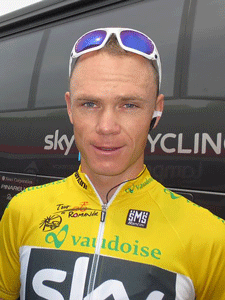 A common misconception often made by small business owners is that marketing is for larger, more established businesses.
A common misconception often made by small business owners is that marketing is for larger, more established businesses.
I had a chat about this with John Ponsford who spent four days last week completely rewiring all the lights in our house.
I asked John how he gets referrals and he explained that all of his work is through recommendation and word of mouth. He’s nervous about spending money on marketing and unsure what results he could achieve if he went down this route. He doesn’t advertise in the Yellow Pages but doesn’t know what he should do or where he should start.
I commended him for the way he and his father quietly got on with the job; how pleasant they were in how they didn’t get in the way of the family; their courtesy and how we appreciated that they always tidied up when they left at the end of the day. In short, John was a complete natural when it came to delivering an excellent service with a can do attitude and took immense pride in his work.
But without a web site and the experience that I and other customers have when dealing with John is not shared with a wider audience and as a result he’s missing potential leads that can help to feed more work into the family business – and these could be more valuable than the referrals he gets from others or through word of mouth. But as yet he’ll never know.
So today’s blog is written for John, whom I really admire and I’m sure all of us know similar tradespeople and other small businesses that deserve to flourish.
The starting point for investing hard earned cash in marketing has to be the strategy that sits behind this decision. A good strategy is a specific and coherent response to the many obstacles to growing a business like John’s. Strategy works best by harnessing and applying power where it’ll have the greatest effect – whether that’s putting a man on the moon, launching a new product or service or winning an Olympic gold medal.
One of the leading proponents of the power of strategic thinking is Harvard Business School Professor Richard Rumelt.
As discussed in my latest book, The Art of Influencing and Selling, Rumelt argues that the heart of a good strategy is insight into the hidden power of a situation and into an appropriate response that will deliver the desired outcome.
Here in the UK, it’s not just successful business leaders or marketers that can lay claim to being expert strategists.
For example, Sir David Brailsford, sports performance director of the hugely successful British cycling team has to be recognised as a global strategic thinker.
Brailsford has helped British riders achieve a record haul of Olympic gold medals, produced a World Champion in Mark Cavendish and two successive Tour de France winners in Sir Bradley Wiggins and now Chris Froome (pictured here) in 2013.
Commenting on the secret of his phenomenal recent success, Brailsford said: “We really looked at how we won last year with Wiggins and then studied the 2013 route, looking at the opportunities to take time. And we saw it was much trickier. So we decided to go a little bit more on the offensive compared with 2012, try and take time on the climbs, and get more of a time margin to be able to handle the risky stages better.”
Clearly Brailsford demonstrates why he’s such a master of strategy. To ensure Chris Froome stood on top of the podium in 2013, what he and Team Sky did was a text book case study in strategic thinking:
- they diagnosed the situation in front of them by analysing both Wiggin’s win in 2012 and the proposed 2013 route on the Tour de France;
- they identified a guiding policy which was to be more offensive and Froome was a very different rider than Wiggins in this respect;
- they executed a coherent action at each individual stage of the race as well as closely monitoring performance behind the scenes; and
- they adopted different tactics for different stages of the Tour de France based on their offensive style of riding and in particular by attacking hill climbs.
The net result was that by following this focused strategy, Froome was able to take minutes off the results that their opponents could muster and win the race.
Creating a winning marketing strategy should be as easy as riding a bike – with a bit of thought, forward planning and attention to detail!














Recent Comments